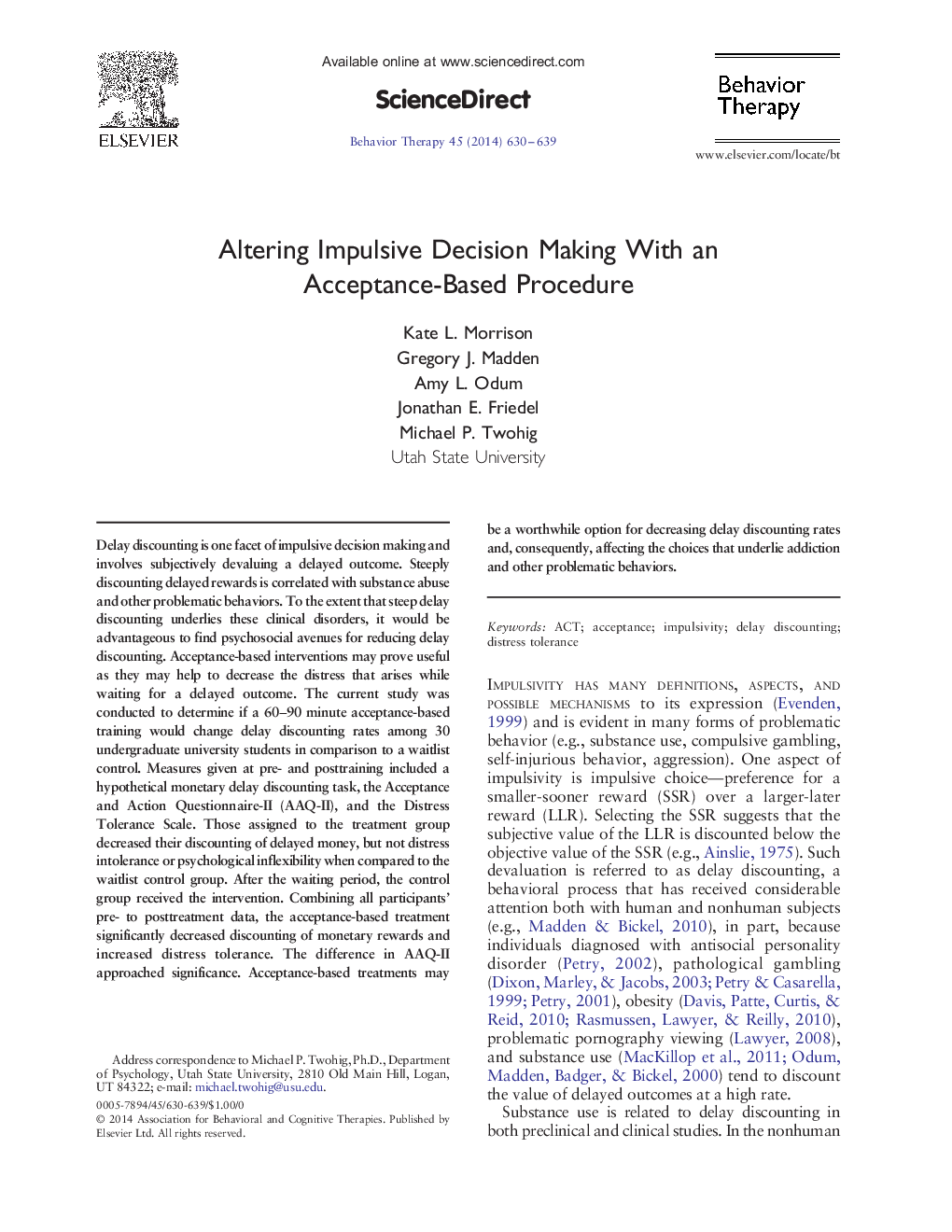| کد مقاله | کد نشریه | سال انتشار | مقاله انگلیسی | نسخه تمام متن |
|---|---|---|---|---|
| 901461 | 915869 | 2014 | 10 صفحه PDF | دانلود رایگان |
• An acceptance-based training is used to change delay discounting.
• The training lowered discounting rates in college undergraduates.
• Acceptance techniques may be useful to reduce impulsive decision making.
Delay discounting is one facet of impulsive decision making and involves subjectively devaluing a delayed outcome. Steeply discounting delayed rewards is correlated with substance abuse and other problematic behaviors. To the extent that steep delay discounting underlies these clinical disorders, it would be advantageous to find psychosocial avenues for reducing delay discounting. Acceptance-based interventions may prove useful as they may help to decrease the distress that arises while waiting for a delayed outcome. The current study was conducted to determine if a 60–90 minute acceptance-based training would change delay discounting rates among 30 undergraduate university students in comparison to a waitlist control. Measures given at pre- and posttraining included a hypothetical monetary delay discounting task, the Acceptance and Action Questionnaire-II (AAQ-II), and the Distress Tolerance Scale. Those assigned to the treatment group decreased their discounting of delayed money, but not distress intolerance or psychological inflexibility when compared to the waitlist control group. After the waiting period, the control group received the intervention. Combining all participants’ pre- to posttreatment data, the acceptance-based treatment significantly decreased discounting of monetary rewards and increased distress tolerance. The difference in AAQ-II approached significance. Acceptance-based treatments may be a worthwhile option for decreasing delay discounting rates and, consequently, affecting the choices that underlie addiction and other problematic behaviors.
Journal: Behavior Therapy - Volume 45, Issue 5, September 2014, Pages 630–639
